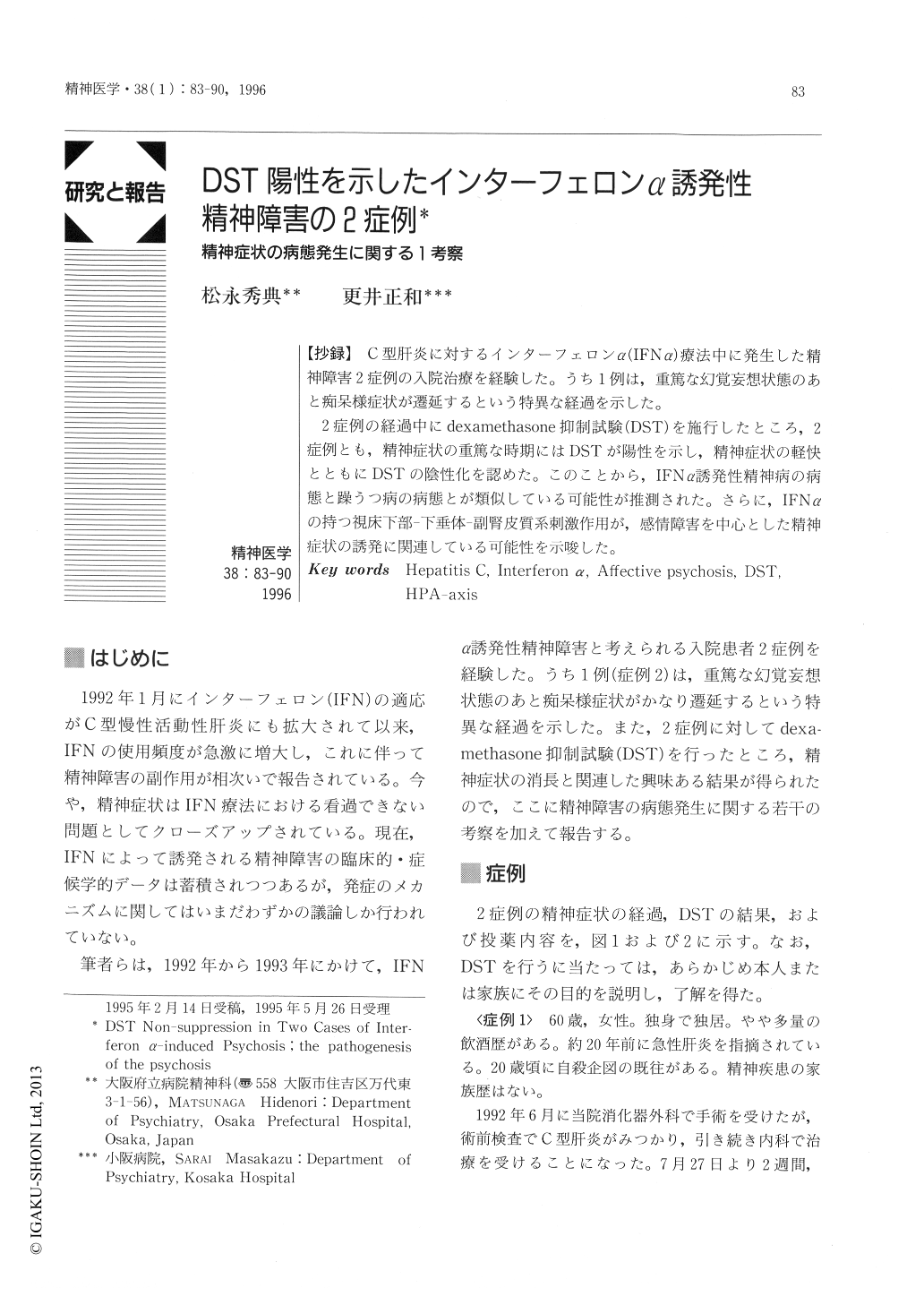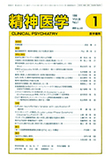Japanese
English
- 有料閲覧
- Abstract 文献概要
- 1ページ目 Look Inside
【抄録】C型肝炎に対するインターフェロンα(IFNα)療法中に発生した精神障害2症例の入院治療を経験した。うち1例は,重篤な幻覚妄想状態のあと痴呆様症状が遷延するという特異な経過を示した。
2症例の経過中にdexamethasone抑制試験(DST)を施行したところ,2症例とも,精神症状の重篤な時期にはDSTが陽性を示し,精神症状の軽快とともにDSTの陰性化を認めた。このことから,IFNα誘発性精神病の病態と躁うつ病の病態とが類似している可能性が推測された。さらに,IFNαの持つ視床下部-下垂体-副腎皮質系刺激作用が,感情障害を中心とした精神症状の誘発に関連している可能性を示唆した。
Two cases of interferon α-induced psychosis during the treatment of hepatitis C were reported. One case (60 years old female) exhibited irritability, excitability, suicidal thoughts, and severe financial and hypochondrical anxiety for three months. The other case (55 years old female)showed severe delusion, excitability, and delirium, followed by a period characterized by cognitive disturbances, and then a mild depressive phase. These mental symptoms in the second case lasted for nine months. Each case had had a previous mental episode, one of which was suspected to be a major depressive episode. The low dose (0.5mg) dexamethasone suppression test (DST) was performed repeatedly, and both cases showed DST non-suppression during the period of severe mental symptoms, but became suppressed after recovery. These results suggest that the pathophysiology of the interferon α-induced psychosis of these patients might be similar to that of major affective disorders, and that the chronic stimulation of the hypothalamo -pituitary-adrenal axis by repeated interferone α administration might be related to the induction of the psychosis. The history of major affective disorders is considered to be characterized by predisposition to the interferon α-induced psychosis.

Copyright © 1996, Igaku-Shoin Ltd. All rights reserved.


